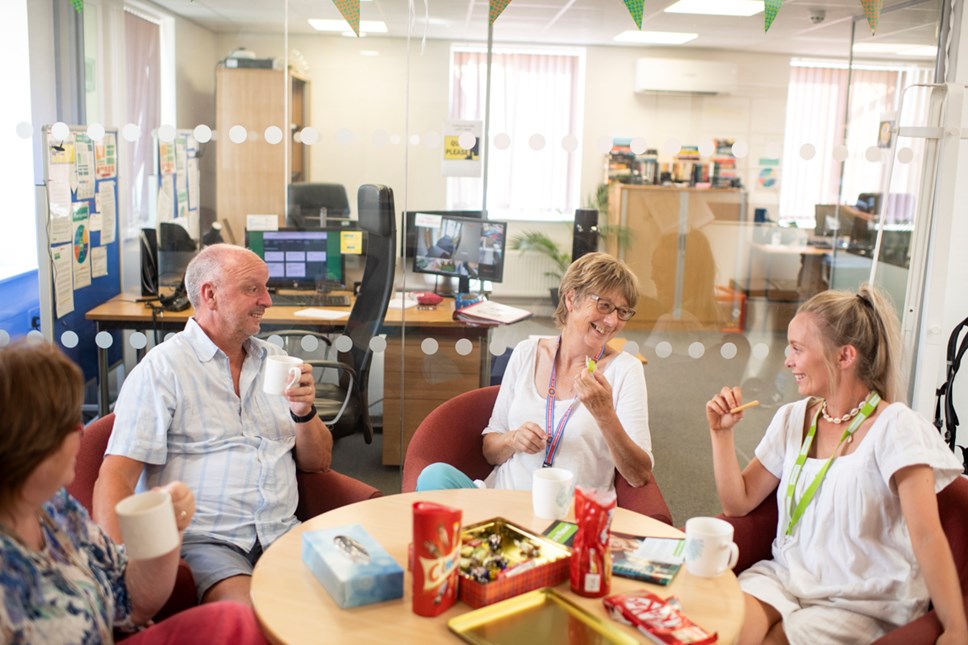
GWR grant to help Samaritans volunteers be there for those struggling to cope
Samaritans has received a £64,000 grant from Great Western Railway to support the charity’s life-saving work and mission to reduce the number of people who die by suicide.
The charity will use the funding to recruit new volunteers and deliver activities in the local communities near 20 Samaritans branches* on the GWR network from Plymouth to London, and Newbury to Swansea, to support the wellbeing of residents.
As part of GWR’s franchise agreement with the Department for Transport, the train operator has a Communities and Education Programme to assist schools, colleges, community and other not-for-profit organisations.
Samaritans’ activities will promote community cohesion through talks and attendance at community groups, businesses, and local events, giving people useful tips on how to support a family member, friend or colleague who may be struggling and how to even help a stranger who might need help.
Jules Twells, Samaritans’ Regional Development Lead, Wales and Western for the Network Rail Partnership, said:
“This generous grant from GWR will be so valuable to our local branches across the route. We know the pandemic has had an impact on the nation’s mental health and many of our volunteers too who had to take additional shifts covering for those shielding or isolating. So, we’re really pleased that this funding will enable each branch to grow their volunteer base and increase their outreach work, boosting wellbeing in their local communities and being there for those who need someone to listen. Our volunteers are available 24/7, free of charge, for anyone who is struggling to cope – call 116 123 or email jo@samaritans.org.”
GWR Community Manager Emma Morris said:
“We’re really pleased to support Samaritans with this funding, which will specifically help to raise awareness and recruit new volunteers. Samaritans has worked in partnership with the rail industry and the British Transport Police for more than 10 years, carrying out vital work to reduce suicides on the railway.”
Contact Information
John Carter
Media and Communications Manager
Great Western Railway
0845 410 4444
Notes to editors
Picture: Chris O’Donovan Photography
- *Samaritans branches include: Bath, Basingstoke, Bridgend, Bristol, Cardiff, Cheltenham, Central London (Westminster), Exeter, Gloucester, Hillingdon (Uxbridge), Newbury, Newport, Plymouth, Reading, Slough, Swansea, Swindon, Taunton, Torquay, Weston Super Mare
About GWR
First Greater Western Limited, trading as “Great Western Railway” (GWR), operates trains across the Great Western franchise area, which includes South Wales, the West Country, the Cotswolds, across southern England and into London. GWR provides high speed, commuter, regional and branch line train services, and before the covid-19 pandemic helped over 100 million passengers reach their destinations every year. GWR was recently awarded an extension to its direct award franchise (called DA3), which shall run up to 31 March 2023, with an option to extend for a further year.
Find out more here: https://www.gwr.com/about-us
About Samaritans
- Anyone can contact Samaritans FREE any time from any phone on 116 123, even a mobile without credit. This number won’t show up on your phone bill. Or you can email jo@samaritans.org or visit samaritans.org
- Every day, Samaritans volunteers respond to around 10,000 calls for help.
- Samaritans is a charity and it’s the public’s kind donations and more than 20,000 volunteers that mean we are always there for anyone struggling to cope. Find out how you can support usor volunteer with us.
- Samaritans has worked in partnership with Network Rail and the wider rail industry for over 10 years to reduce suicides on the network. To date, Samaritans has trained over 23,000 rail and BTP staff in suicide prevention to be able to identify vulnerable people, talking to them and getting them to safety.
